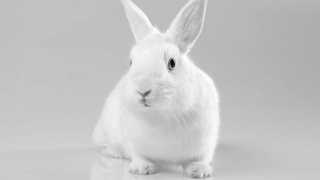
We need your help to end animal testing in Britain
Animal testing in Great Britain fell by 10% in 2022 – but we need numbers to fall faster, in line with the government’s recent commitment to developing more non-animal testing methods.
Home Office statistics released today show that there were 2,761,204 uses of animals in British laboratories last year. This represents a fall of 10% from 2021 and is the lowest annual total since 2002.
Nearly half (over 1.2 million) of these uses were for the creation and breeding of genetically altered animals who were not used in further tests. 29% were for curiosity-driven research, 13% for research aimed at developing treatments or cures for diseases and 10% for regulatory testing to assess the effectiveness and safety of chemicals, medicines and other products.
The figures also indicate progress has been made in eliminating the outdated tests described in our UK RAT List – a list of five animal tests that are conducted in Britain despite having approved non-animal replacements and whose abolition could save over 80,000 animals every year. 2022 saw welcome decreases in skin irritation, skin sensitisation and batch potency tests on animals, but disappointingly there was an increase in eye irritation tests on rabbits.
Whilst severe uses, which cause the most pain and suffering to the animals involved, including long-term disease and even death, decreased overall by 18%, there were 20 severe experiments on dogs in 2022, rising from zero in 2021. There was also an 18% increase in severe experiments on rabbits (to 94), and a 5% rise in severe experiments on guinea pigs (to 1,317).
Moderate uses, which cause significant suffering to an animal but are not life threatening, increased overall by 4%.
The total number of experiments on dogs fell by 2%, to 4,122. The number of tests using cats fell by 34%, to 102, and there was a 21% decrease in experiments on monkeys, to 2,197.
Our Director of Science and Regulatory Affairs, Dr Emma Grange, said: “Since around 2015, the general trend has been for a small reduction, year on year, in the number of tests performed on animals in Britain. We welcome these latest statistics which indicate that the trend continues, yet there is definitely more to be done – we can do much better than this very gradual reduction.
“Thanks to your support, our work will continue to help drive these numbers down. We need the government, regulators and researchers to be proactive in ensuring that this progress not only continues but accelerates. The government must honour the Home Secretary’s commitment towards developing alternatives to animal testing.
“Any cruel animal test is one too many and we will continue to fight for zero animal experiments in Great Britain. We are calling for the government to draw up a plan to phase out animal testing for good, by accelerating progress and embracing opportunities for scientific innovation. We need a new ministerial role to deliver the plan, dedicated to accelerating the transition and holding the government to account across all departments so that we can bring about the world free from animal testing that we all want to see.”
Sign up for campaign alerts below to make sure you don't miss out on important news about what we are doing for animals in laboratories.
